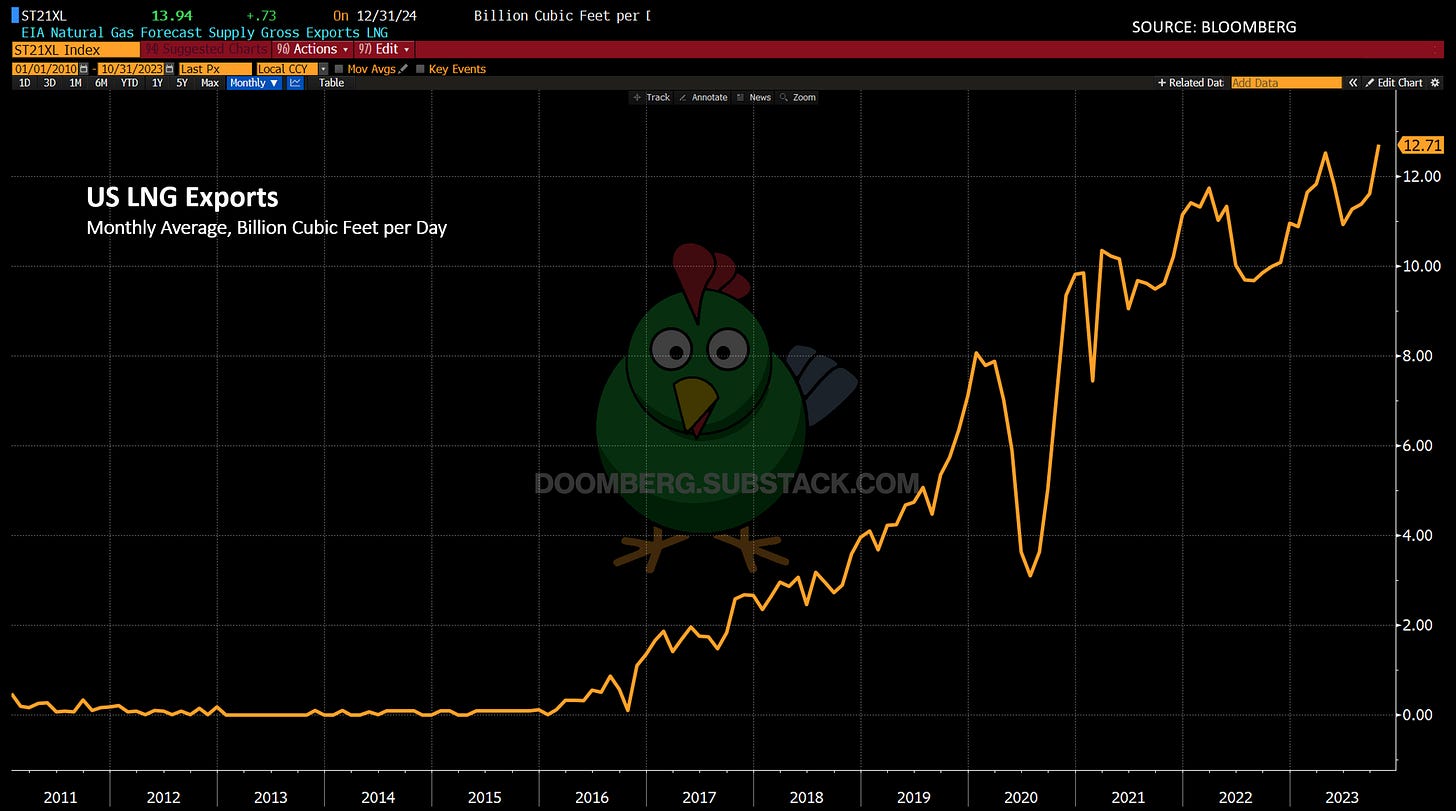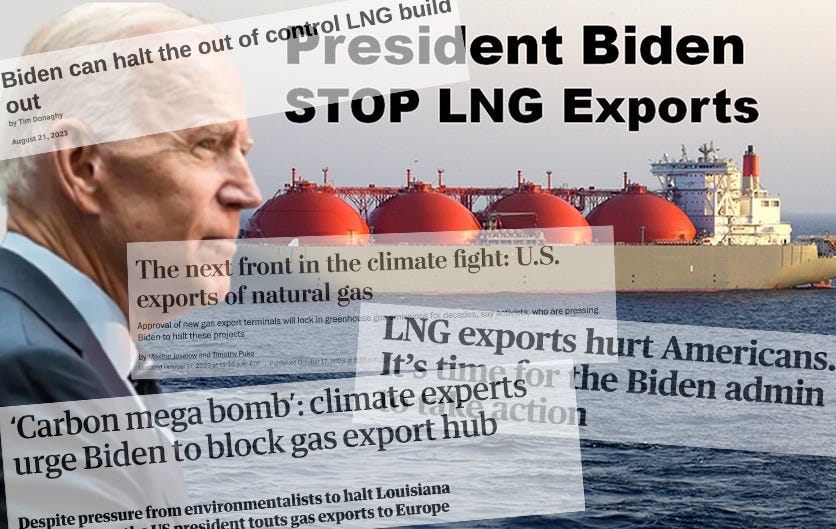A McKibben With Fries
The environmental left wants to force Biden’s hand on US LNG exports.
“Somewhere in the world there is an epigram for every dilemma.” – Hendrik Willem Van Loon
Western Europe managed to avoid a cataclysmic humanitarian disaster in the winter of 2022-2023 for three reasons. First, it was blessed with an unusually warm winter. Contrary to the narratives spun by climate alarmists, there are some advantages to a warming planet, and you can count Germany among the early beneficiaries. Second, coal was stockpiled and burned in huge volumes, making a mockery of European efforts to vilify its use. Finally, an armada of liquified natural gas (LNG) carriers—transporting fuel largely produced in the US—was diverted to the Old Continent, much to the chagrin of billions of citizens in the developing world.
Europe’s ability to partially offset lost Russian natural gas with US-derived LNG is testimony to the technological and engineering miracles routinely on display in the shale patch. In a little over a decade, the US reestablished itself as the world’s preeminent energy superpower, becoming the global leader in both oil and natural gas production. The country, which had zero LNG export capacity, is now the largest seller of the stuff. Billions continue to be poured into the sector in pursuit of a globally harmonized market. In the long term, the arbitrage opened by wide regional price swings will be closed, and energy-hungry citizens the world over will benefit.
Of course, nothing infuriates the progressive environmental left like seeing growing global energy demand being met with ample supply and shutting down US LNG exports has suddenly become one of their top priorities. Like all good environmental scare campaigns, this one comes complete with a molecular villain: methane leaks. For a sense of the hyperbole brewing among the anti-energy crowd, we turn to an article written for The New Yorker by Bill McKibben, a man we have previously described as being “so revered by the climate consortium that he has been bestowed with no less than 20 honorary degrees from various institutions of higher learning.” When it comes to dour alarmism, McKibben rarely disappoints, and this time is no different (emphasis added throughout):
“The Biden Administration faces one of its most profound climate choices this autumn: Should it continue to allow the expansion of liquefied-natural-gas exports, or should it halt the rapid buildout of this industry at least until it can come up with new guidelines? The stakes are enormous—the buildout of LNG infrastructure in the United States is by far the largest example of fossil-fuel expansion currently proposed anywhere in the world. But there’s some new data that may make the Administration’s choice easier—or certainly starker.
The data are from an analysis by Robert Warren Howarth, a professor of ecology and environmental biology at Cornell who is one of the world’s premier methane scientists…
According to his calculations, even when the gas is delivered with the most modern ship, taking the most direct route, the greenhouse-gas emissions from the entire ground-to-combustion life cycle of LNG—from the fracking wells, to the pipelines, the liquefaction stations, the ships, and the final combustion—are twenty-four per cent worse than those caused by digging up and burning an equivalent amount of coal. (The worst cases—long voyages in old vessels burning lots of oil—show an impact two hundred and seventy-four per cent worse.)”
The anti-LNG campaign comes at a rather uncomfortable time for the Biden administration. As the President gears up for a tough election season, he will have to choose between projecting US geopolitical power via energy exports or satisfying the most vocal members on his left plank. The US Department of Energy (DOE) is already slow-rolling approvals for new LNG construction, but such stalling can only delay the inevitable for so long. Decision day looms, and the path Biden chooses will have enormous consequences.
Setting aside the scientific basis for this latest orgy of panic, what would happen if McKibben and crew got their way? What if the US halts planned LNG export expansions or begins to close existing facilities? If the ultimate objective of the environmentalists is a complete halt to US LNG exports, the consequences would be nothing short of staggering. Let’s tour the global energy markets and engage in a bit of informed speculation.



